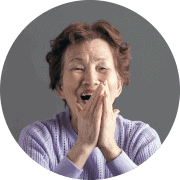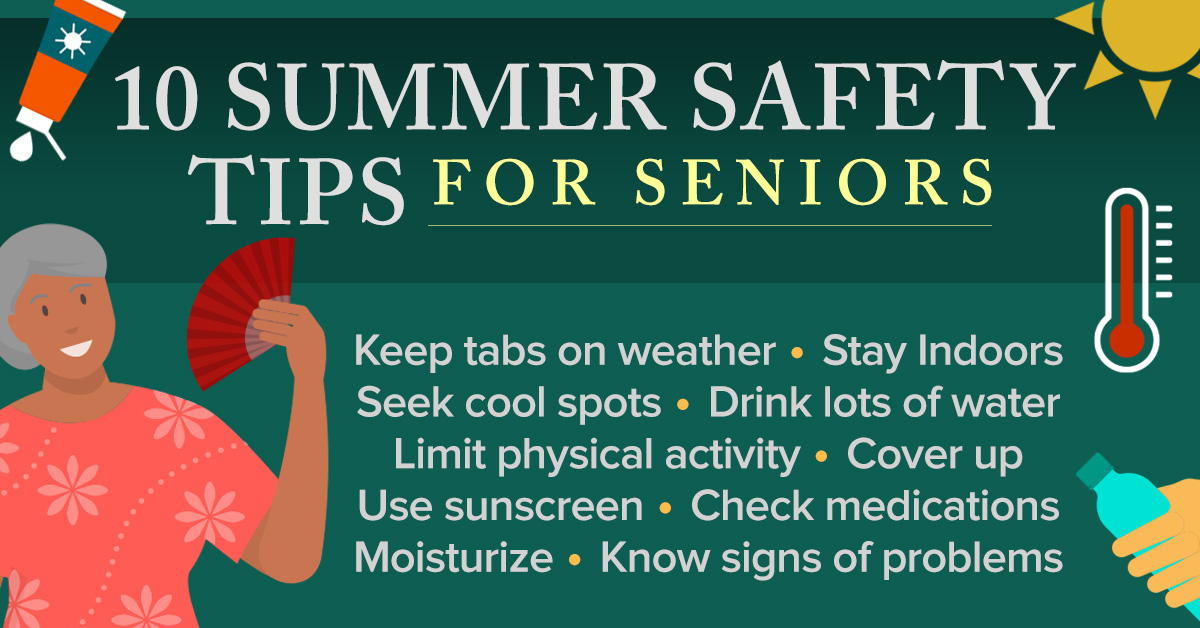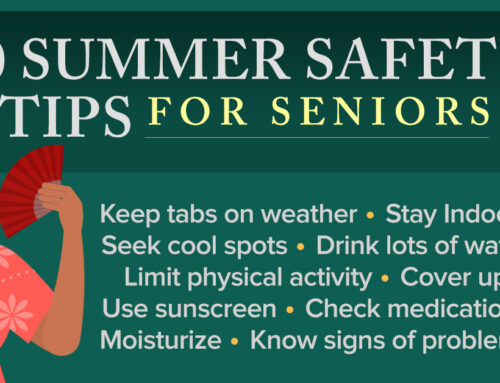10 Summer Safety Tips for Seniors
10 Summer Safety Tips for Seniors
As the temperature rises, so does the risk for heat-related problems – especially for older adults.
“Summer is here, which means we’ll all be spending more time outdoors soaking up the sunshine,” said Sierra Goetz, co-founder and operations manager at the HomeCare Advocacy Network (HCAN). “While sun exposure does have benefits – including mood improvement – too much exposure can be harmful. For seniors, the risk of heat- and humidity-related problems is much higher.”
How Seniors Can Beat the Heat
Below are ten tips to help you and your aging loved ones beat summer’s sweltering heat.
Keep tabs on the weather.
Check forecasts regularly, so you can plan ahead for extremely hot days. In addition to the temperature, pay attention to the heat index, which takes into account both air temperature and humidity to determine what it actually feels like outside.
Stay indoors during extreme heat.
In extreme heat and humidity, evaporation slows down, so the body must work harder to maintain a normal temperature. Stay indoors when the sun is most intense – between 10 a.m. and 4 p.m.
Seek out cool spots.
If you don’t have air conditioning, find a place where you can keep cool during the heat of the day – a shopping mall, movies, library, senior center or a friend’s home.
Drink plenty of water.
Hydrating is good for skin’s elasticity, and it will help prevent dehydration, which can come on quickly during the summer months. Drink at least 6-8 glasses of water a day – more if you spend time outdoors.
Limit physical activity.
Avoid outdoor exercising and other physical activity when it’s very hot – hit the gym instead.
Cover up.
Wear loose, lightweight clothing made of breathable fabric and a wide-brimmed hat. It’s important to protect your eyes, too – wrap around sunglasses can block at least 99% of UV light.
Use sunscreen.
Never go outdoors without applying sunscreen. Use a broad-spectrum sunscreen with an SPF of at least 30. Reapply every two hours and after swimming or sweating.
Check medications.
Some medications cause increased sensitivity to the sun – including certain antibiotics, antihistamines, diabetes medications, diuretics and cholesterol-lowering drugs. Before heading into the heat, talk to your doctor about possible negative interactions.
Know the early signs of heat-related problems.
Take immediate action if your senior loved one experiences disorientation, dry skin, excessive tiredness, headache, lethargy, nausea, a flushed face, high body temp, rapid pulse, dizziness and confusion.
Moisturize.
Aging skin is more prone to dryness, so they should use moisturizer after any sun exposure.
Caregivers Help
“If time or distance limits your ability to regularly check on your senior loved ones during the summer months, we can help,” Goetz said. “Our caregivers are trained to watch for heat-related red flags and take action, when necessary. They also will spend quality time with them – working puzzles, watching favorite shows or looking through photo albums, to keep them engaged, entertained and safely indoors during periods of extreme heat and humidity.”
For more information about HCAN’s services, visit hcanthrive.com or call your local office.






